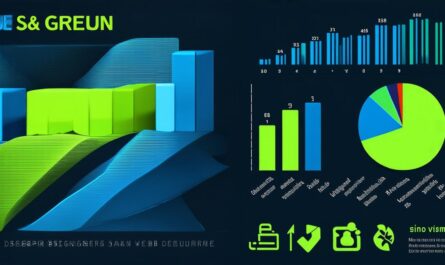Digital marketing campaigns are a vital tool for businesses looking to promote their products and services online. With the rise of social media, email marketing, and search engine optimization (SEO), there are more ways than ever to reach potential customers.
Defining Your Target Audience
The first step in any successful digital marketing campaign is defining your target audience. This involves identifying the characteristics of the people you want to reach, such as age, gender, income level, interests, and location. By understanding your target audience, you can create more effective messages that resonate with them.
For example, if you own a small business in a rural area, your target audience may be homeowners between the ages of 30 and 50 who are looking for local services such as plumbers or electricians. On the other hand, if you run an e-commerce store that sells fashion accessories, your target audience may be women aged 18 to 35 who are interested in the latest trends.
Once you have defined your target audience, you can use this information to create buyer personas, which are fictional representations of your ideal customers. This will help you understand their needs, pain points, and motivations, which will inform your marketing strategy.
Setting Clear Goals and Objectives
The next step in running a successful digital marketing campaign is setting clear goals and objectives. These should be specific, measurable, achievable, relevant, and time-bound (SMART).
For example, if you want to increase website traffic, your goal might be to increase organic search traffic by 50% within the next six months. Alternatively, if you want to increase sales, your goal might be to generate 100 new leads per day through paid advertising.
By setting clear goals and objectives, you can measure the success of your campaign and make data-driven decisions about how to optimize it for better results.
Choosing the Right Marketing Channels
There are many different marketing channels available to businesses, including social media, email marketing, search engine marketing (SEM), content marketing, and influencer marketing. The best channel for your business will depend on your target audience, goals, and budget.
For example, if you own a local restaurant, social media might be the best channel for reaching potential customers in your area. You could create a Facebook page and post updates about menu changes, specials, and promotions to attract new customers.
On the other hand, if you run an e-commerce store that sells products online, email marketing might be the best channel for promoting your brand and driving sales. You could use email campaigns to offer exclusive discounts or promotional codes to incentivize people to make a purchase.
It’s important to note that no single marketing channel is the best for every business. You should experiment with different channels and measure their effectiveness to find the best combination of tactics for your specific needs.
Creating Compelling Content
Content marketing is a powerful tool for driving engagement and generating leads. By creating high-quality content that provides value to your target audience, you can attract more visitors to your website and increase your search engine rankings.
There are many different types of content that you can use in your digital marketing campaign, including blog posts, videos, infographics, ebooks, and social media posts. The key is to create content that is relevant, informative, and engaging for your target audience.
For example, if you run a fitness studio, you could create a blog post about the benefits of yoga for beginners. This would provide value to potential customers who are looking for information about exercise and health, and could help attract new members to your studio.
Optimizing Your Website for Search Engines
Search engine optimization (SEO) is the practice of optimizing your website to rank higher in search engine results pages (SERPs). This involves using various techniques such as keyword research, on-page optimization, and link building to improve your website’s visibility and drive more traffic.
One of the most important aspects of SEO is creating high-quality, keyword-rich content that provides value to your target audience. By doing this, you can attract more organic search traffic to your website and improve your search engine rankings.

In addition to creating great content, there are many other tactics you can use to optimize your website for search engines, such as using relevant meta tags, optimizing images, and building high-quality backlinks. By implementing these strategies, you can improve your website’s visibility and attract more potential customers.
Measuring and Analyzing Your Campaign Results
Once you have launched your digital marketing campaign, it’s important to measure and analyze its results to determine what is working and what isn’t. There are many tools available that can help you track your campaign performance, such as Google Analytics, social media analytics, and email marketing software.
By analyzing your campaign data, you can identify which channels and tactics are driving the most traffic, conversions, and sales. You can then use this information to optimize your campaign for better results and make data-driven decisions about where to allocate your budget.


